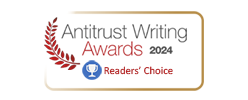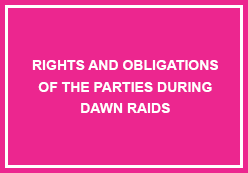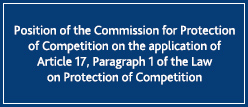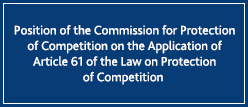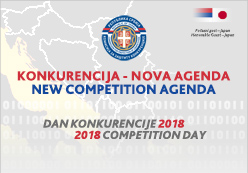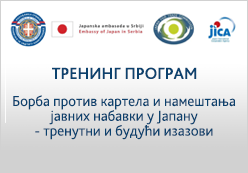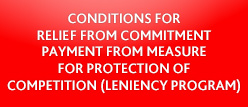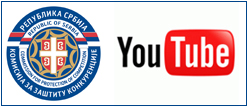
On the occassion of the Competition Day and marking of ten years of successful work, Commission for Protection of Competition has organized an international conference dedicated to competition policy.
The conference was opened by the Vice President of the Government, Prof. Kori Udovicki, Ph.D., President of Commission for Protection of Competition Miloje Obradovic, Ph.D., Aleksandra Tomic, Ph.D., President of the Committee of Economy, Regional Development, Trade, Tourism and Energy of the National Assembly and Stefan Hudolin from the Delegation of the European Union.
President of Commission for Protection of Competition, Miloje Obradovic announced, on that occassion, passing of the new law, which would enable more efficient work of the Commission. ”We will open a broad debate in order to find best solutions and ideas, which would result in proposal of a new, high-quality Law on Protection of Competition”, he said. President Obradovic said that the current Law is based on EU acquis, but its changes are necessary, because, after all, it has certain weaknesses that may create possible legal uncertainty. He also noted that there is a significant room for improving the institutional capacity of the Commission and added that the sustainable functional independence of the Commission is important.
”Already we are proud that a qualitative shift was made regarding the importance of initiated procedures and their professional conduct before the Commission. We consider as significant the number of confirmed decisions, because these decisions issued by the Commission are directly aimed at the establishment of effective competition. Big steps were also made towards harmonisation with EU standards, which was a joint conclusion after a very successful bilateral screening of Chapter 8 in Brussels. The Commission also started with the implementation of important legal instrument – dawn raid to combat distortion of competition rules,” he pointed out.
Vice President of the Serbian Government Kori Udovicki expressed support for the work and functions of the Commission. ”We are willing to give support to the improvement of regulatory frame for building a stronger competition,” she said. According to the words of Vice Presicent Udovicki, it is important that this institution exists, regardless of the ultimate outcome of the road to the EU and also, that the activities and influence of the Commission should extend.
Vice President Udovicki also said that the biggest challenge for Serbia is to create business environment, which will be more receptive and productive.
President of the Parliamentary Committee for Economy, Aleksandra Tomic said that Serbian National Assembly, and in particular Committee for Economy, Regional Development, Trade, Tourism and Energy has a completely proactive stance that relates specifically to the process of preparation and adoption of amendments to the Law on Protection of Competition, participation in the presentation of the Report on the work of the Commission and, the last but not the least important, forwarding of materials of relevance for competition to Commission, of which the Committee expected and received substantiated and timely responses.
Representative of Delegation of the European Union in Serbia Stefen Hudolin said that Serbia, supported by EU has come a long way in competition protection and added that the Serbian regulations governing this field are largely harmonized with European legislation.
In the professional part of the conference attended by around 120 guests, the participants were Theodor Tanner, President of Austrian competition authority, William Kovacic, professor at the George Washington University, Hassan Qaqaya, former Director of Competition Policy and Consumer Protection of the UN Conference on Trade and Development, Bogdan Marius Chiritoiu, President of Romanian Council for Competition, Jana Mikhailova, President of the Board of Foreign Investors Council, Mladen Cerovac, President of Croatian Competition Agency and Andrei Kasavarov, Deputy President of Federal Antimonopoly Service of the Russian Federation, officials of regulatory authorities, academic institutions, as well as representatives of chambers of commerce, law firms and business associations.
12.04.2016
